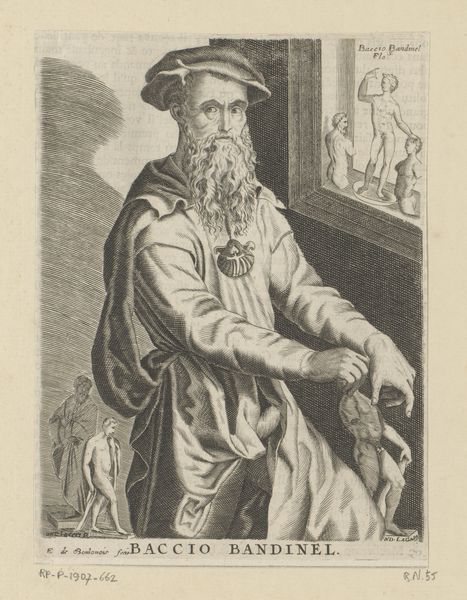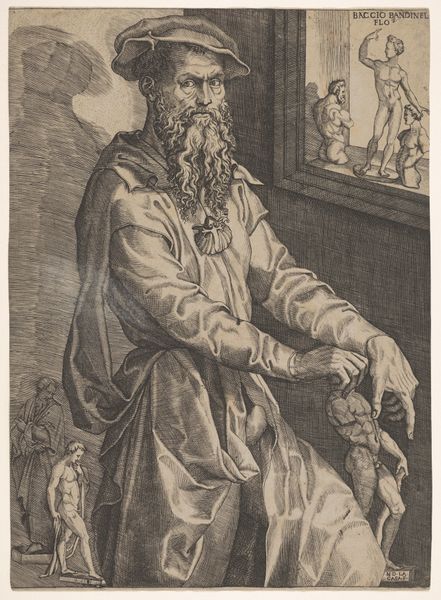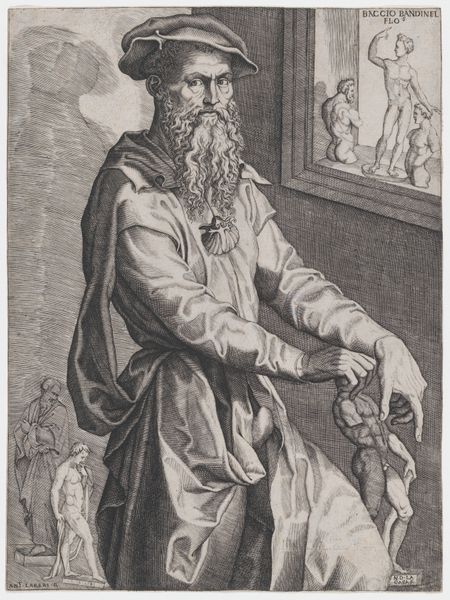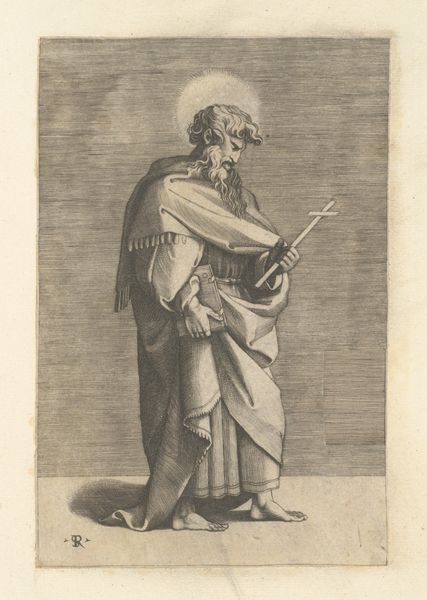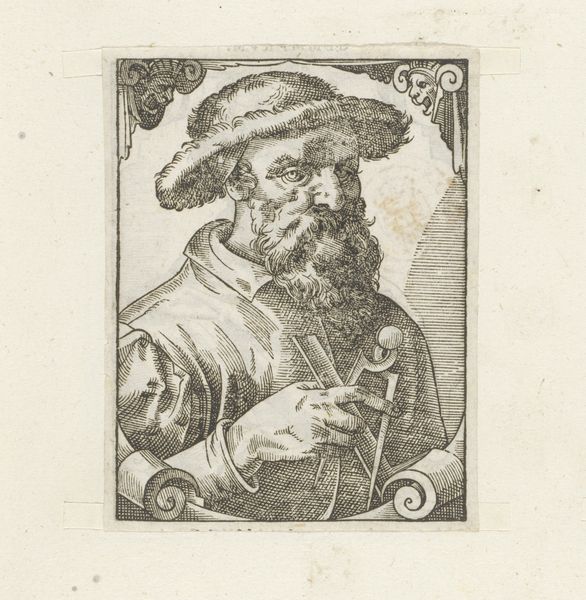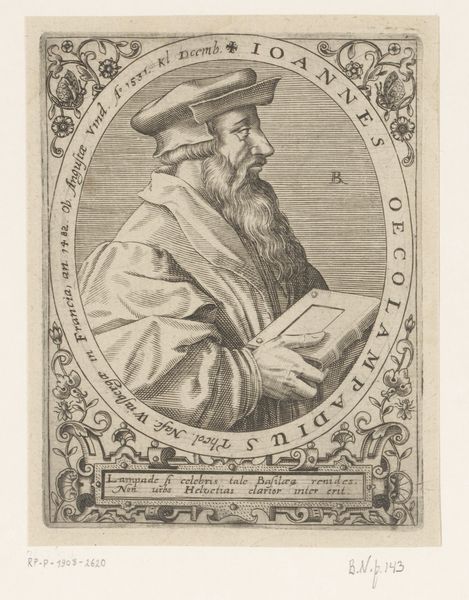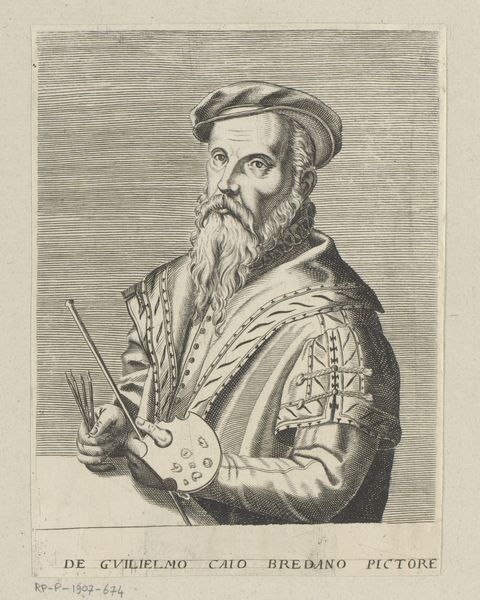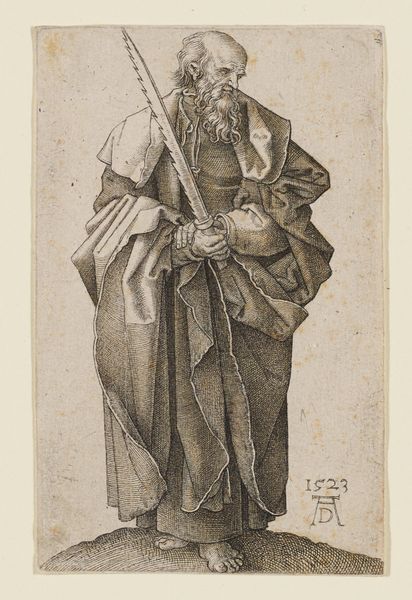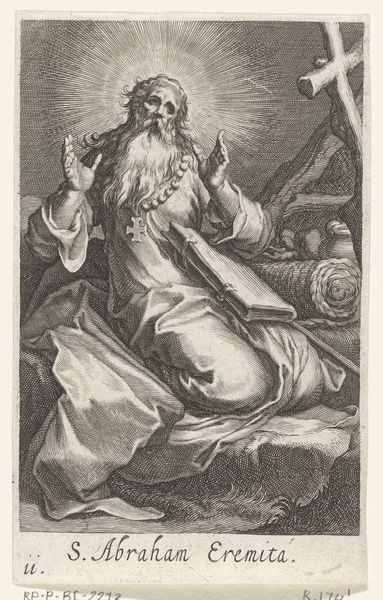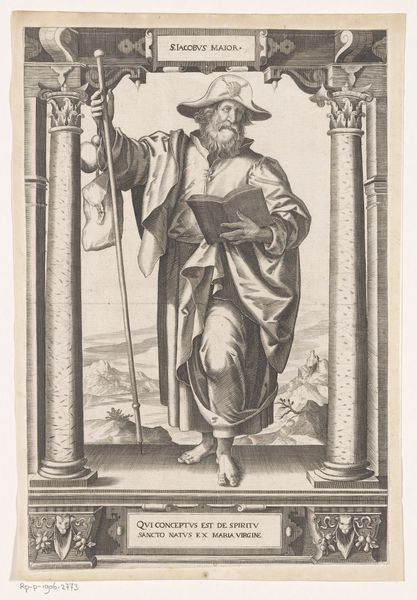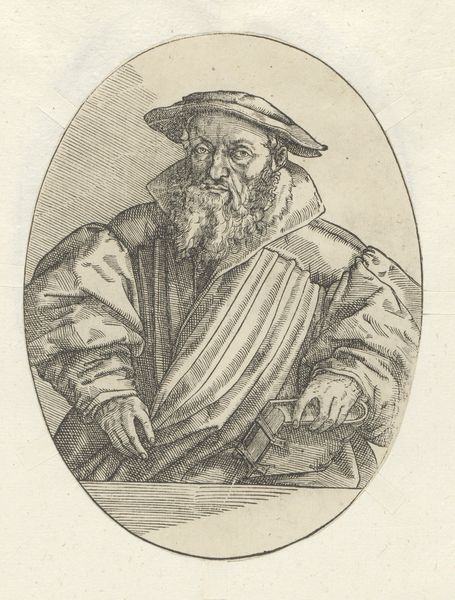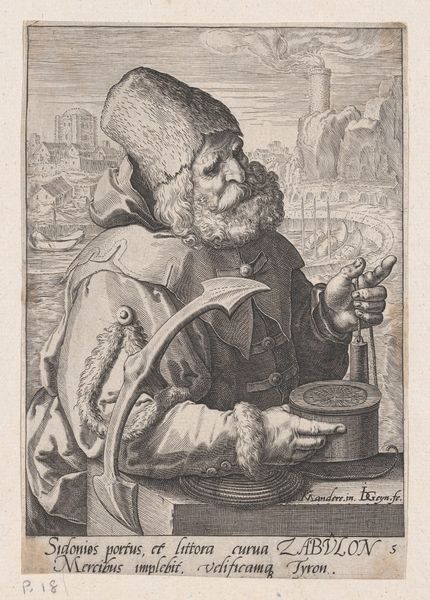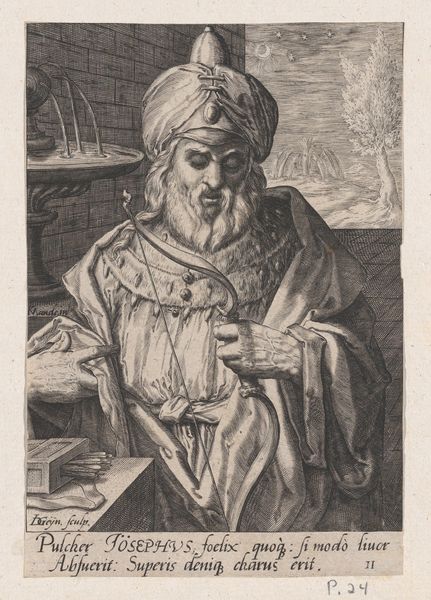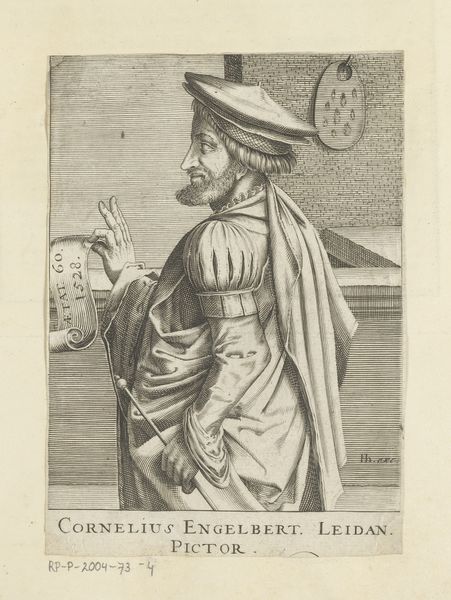
intaglio, engraving
#
portrait
#
toned paper
#
intaglio
#
old engraving style
#
mannerism
#
personal sketchbook
#
history-painting
#
italian-renaissance
#
engraving
Dimensions: height 295 mm, width 220 mm
Copyright: Rijks Museum: Open Domain
This is Nicolò della Casa’s portrait of the sculptor Baccio Bandinelli, an engraving made sometime in the mid-16th century. Engraving is an intaglio process. The artist uses a tool called a burin to manually incise lines into a copper plate, creating recesses that will hold ink. The entire plate is inked, then wiped clean, leaving ink only in the engraved lines. The plate is then pressed against paper, transferring the image. This method allows for remarkable detail and precision, as we can see in the dense hatching that defines Bandinelli's beard and robes. Look at how della Casa uses varied line weights to create a sense of depth and volume, and how the controlled strokes capture the textures of stone, cloth, and flesh. As a print, the portrait could be reproduced and disseminated widely, contributing to Bandinelli's fame. This reveals the intersection of art, labor, and the burgeoning print market of the Renaissance. By mastering the craft of engraving, della Casa both documented and amplified Bandinelli's artistic persona.
Comments
No comments
Be the first to comment and join the conversation on the ultimate creative platform.
